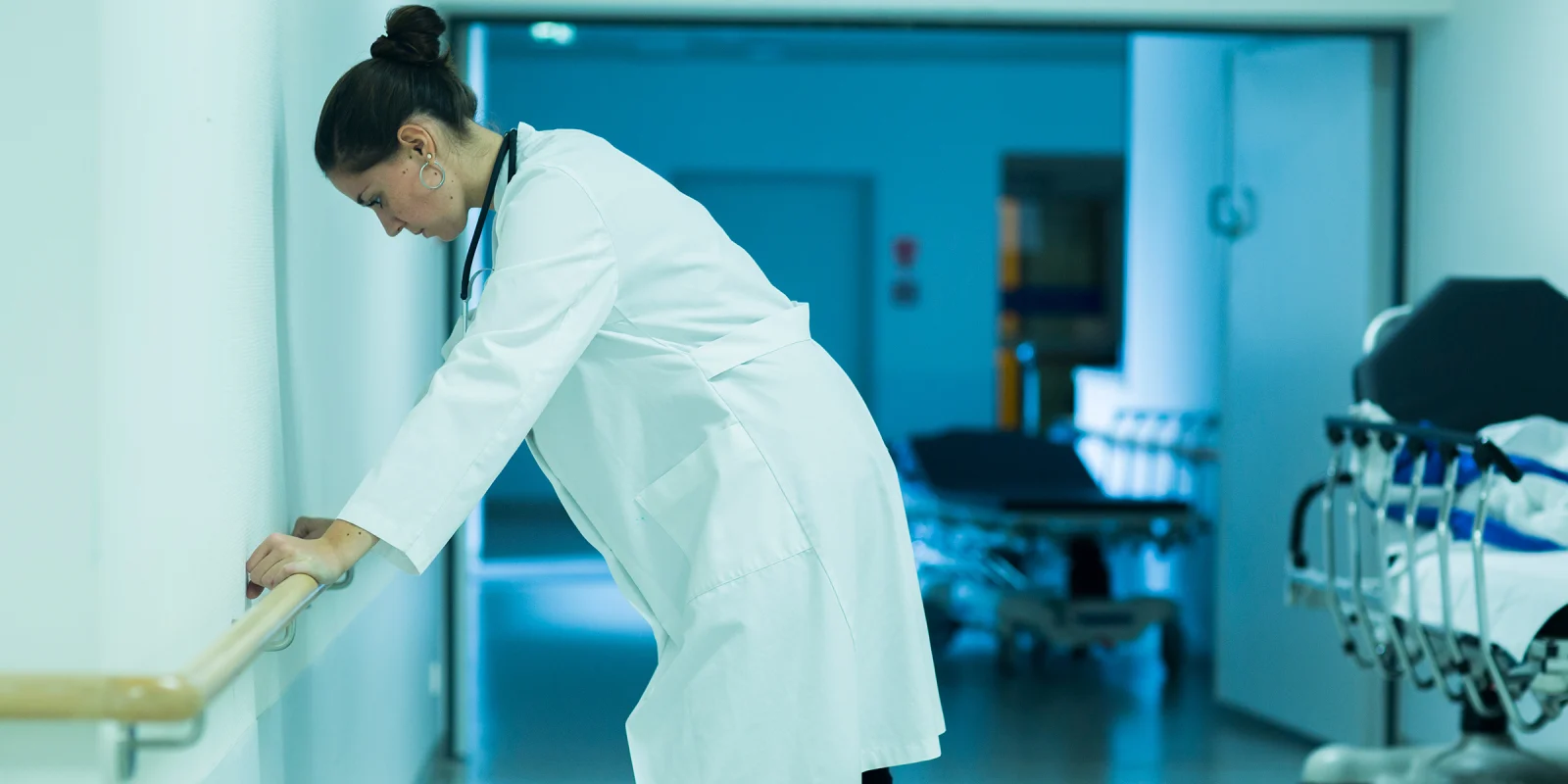Dr. Amanda Williams is a 2020–2021 Doximity Research Review Fellow. Nothing in this article is intended nor implied to constitute professional medical advice or endorsement. The views expressed in this article are those of the author and do not necessarily reflect the views/position of Doximity.
Every year, ob/gyn residents across the United States take the Council on Resident Education in Obstetrics and Gynecology in-training examination. Attached to this full day of required written testing, there is a survey, which provides an impressively expansive means of administering a research survey to a large group of trainees.
In 2017, 93% of examinees completed the survey and were included in that year’s study. That survey — 2017’s — is still a common topic of discussion in ob/gyn training programs years later because it focuses on the often-cited but ever-elusive issue of wellness. The findings were stunning to some, unsurprising to others. There was a high prevalence of self-identified wellness issues, such as burnout (51.2%), depression (32%), binge drinking (12.6%), eating disorders (4.7%), drug use (1.1%), and suicide attempt (0.4%), and these problems were reported with increasing frequency in each subsequent year of training.
A recently-published secondary analysis looking at free text responses suggests there is yet more cause for concern. Many residents reported anxiety and mood disorder symptoms, as well as thoughts of self harm. The authors point out that while stress in ob/gyn is unsurprising, the data suggests that our training environments tolerate high rates of distress in trainees, an issue that can only be altered by changing institutional cultures.
It is unrealistic to propose that either trainees or attendings in ob/gyn will ever be without significant stressors. We work long hours with high clinical acuity, perform complex gynecologic operations and make life-saving obstetric decisions. We see the effects of sexual violence and abuse. We walk with our patients through some of the happiest and hardest times of their lives. We may deliver someone’s baby and later find ourselves treating that same patient’s gynecologic cancer. We counsel patients with unplanned pregnancies, diagnose miscarriages, and treat infertility. We see unexpected bad outcomes. We run towards alarm bells and emergencies. No one would expect or want us to be entirely unphased by our jobs.
However, we could be better supported. The authors of the secondary analysis point out that while the surveyed residents desired autonomy to care for themselves, the reported issues were higher at programs where residents felt there was a lower emphasis on well-being. The authors also suggest various means by which institutions might improve their cultures, although these interventions present their own challenges. Instituting formal mentorship programs or annual surveys may seem like quick fixes, but they would be worthless without full program buy-in and appropriate follow up. Addressing common training stressors — such as financial difficulties, sleep deprivation, and lack of time for family — would be useful but complicated improvements to invest in. Developing a better understanding of unique workplace stressors specific to our field, as well as systemic issues (e.g., sexism, racism, and other institutional factors) would take time — but may very well be the most worthwhile intervention. Indeed, improving our understanding of these issues may help us destigmatize the effects of workplace stress and alter institutional culture.
For those of us in our final years of residency, there are two immediate actions we can take right now. We can support our fellow residents, and we can expect more from our training institutions. The past year has emphasized the stress on the world and on our workplace, and if our institutions are not showing dedication to social justice or support for trainees, we should hold them accountable. We should also be checking in on one another. A show of support between co-residents has always been meaningful but seems to offer something extra during the COVID-19 pandemic. Similarly, words of encouragement can go a long way in training, and protecting the lower-level resident at work can be as invigorating for us as it is palliating for them. Most importantly, as we finish residency in the coming months, we can bring our perspective to our new roles, and do the hard work of making institutional changes from the inside, with the goal of supporting trainees in mind.
Dr. Williams completed her undergraduate training at the University of Notre Dame in 2013 after majoring in physics. She then went on to medical school in Chicago and is now in her final year of ob/gyn residency in Houston, Texas.







